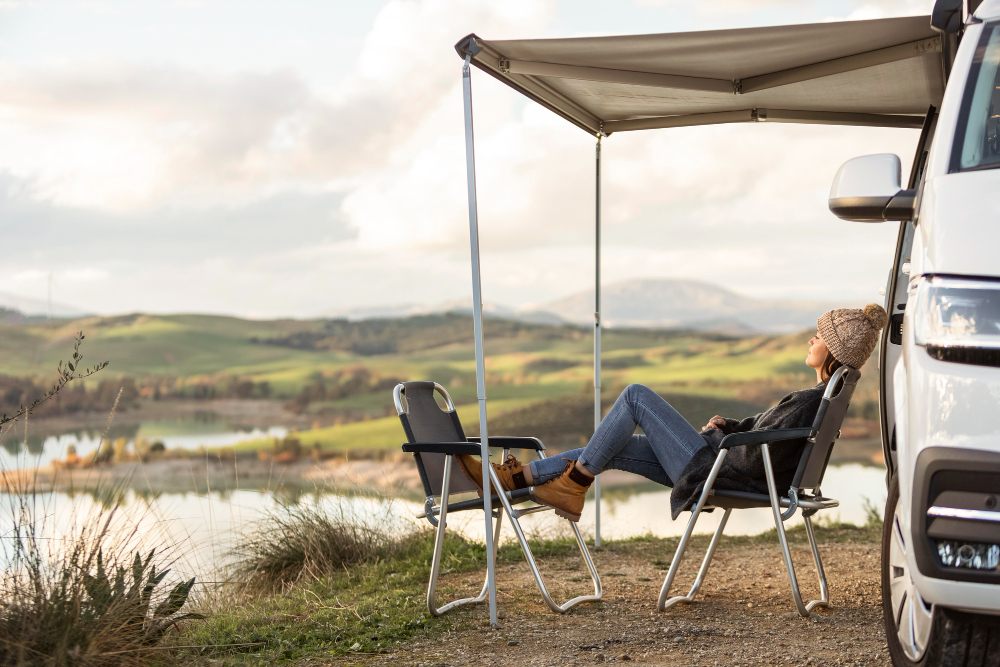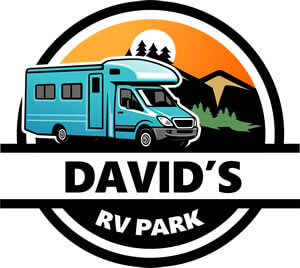
RV camping offers the perfect blend of adventure and comfort, but safety should always be your top priority. Whether you're a seasoned road warrior or planning your first RV trip, understanding essential safety practices can make the difference between a memorable vacation and a dangerous situation.
From choosing secure campgrounds to maintaining your vehicle properly, safe RV camping involves multiple layers of preparation and awareness. The good news is that with the right knowledge and planning, you can minimize risks while maximizing your enjoyment on the road.
This guide covers everything you need to know about staying safe during your RV adventures, including how to select secure camping locations, essential safety equipment, and best practices for both experienced and novice RVers.
Your safety starts with selecting the right campground. Not all RV parks offer the same level of security and amenities, so research is crucial before making reservations.
Start by reading recent reviews on multiple platforms like Campendium, RV Life, and Good Sam Club. Pay attention to comments about safety, cleanliness, and management responsiveness. Look for patterns in reviews rather than focusing on single complaints.
Check if the RV park has proper lighting throughout the grounds, especially near restrooms and common areas. Well-lit facilities deter criminal activity and help prevent accidents during nighttime bathroom trips.
Established RV parks with on-site management typically maintain higher safety standards. These facilities usually have clear check-in procedures, posted rules, and staff available to address concerns promptly.
Ask about security measures when making reservations. Some parks have gated access, security patrols, or cameras in common areas. While these features aren't mandatory, they can provide additional peace of mind.
Consider the surrounding area when choosing an RV park. Facilities located in remote areas may offer beautiful scenery but could pose challenges if you need emergency services or supplies. Balance your desire for solitude with practical safety considerations.
Parks near major highways often provide convenience but may experience more noise and transient traffic. Urban RV parks offer easy access to services but might have higher crime rates in surrounding neighborhoods.
Proper safety equipment can prevent minor issues from becoming major emergencies. Your RV should be equipped with both basic safety items and specialized equipment designed for recreational vehicles.
Install smoke detectors in sleeping areas and test batteries regularly. Many RV fires start from cooking accidents or electrical problems, so placement near potential fire sources is critical.
Keep at least two fire extinguishers in your RV: one near the kitchen and another near the bedroom. Choose extinguishers rated for Class A, B, and C fires to handle different types of emergencies effectively.
Consider installing a fire escape ladder if you have a tall RV with bedroom windows above ground level. Practice using emergency exits with all family members before hitting the road.
Propane gas powers many RV appliances but can create deadly situations if leaks occur. Install propane detectors near floor level since propane gas is heavier than air and settles downward.
Carbon monoxide detectors should be placed at eye level in sleeping areas. This odorless gas can accumulate quickly in enclosed spaces, especially when using generators or driving with windows closed.
Test all detectors monthly and replace batteries according to manufacturer recommendations. Consider upgrading to detectors with digital displays that show exact gas levels rather than simple alarm-only models.
Stock a comprehensive first aid kit appropriate for your group size and typical activities. Include prescription medications, emergency contact information, and any specialized medical supplies for chronic conditions.
Pack emergency supplies for at least 72 hours, including water, non-perishable food, flashlights, batteries, and warm clothing. These supplies prove invaluable during severe weather or unexpected breakdowns.
Regular maintenance prevents most RV emergencies, but a thorough pre-trip inspection catches problems before they become dangerous.
Check tire pressure when tires are cold, preferably in the morning before driving. Under-inflated tires generate excessive heat and can fail catastrophically at highway speeds.
Inspect tires for cracks, bulges, or unusual wear patterns. Replace any tires showing signs of aging or damage, even if tread depth appears adequate. RV tires carry heavy loads and age quickly when exposed to sunlight.
Verify that lug nuts are properly tightened and wheel bearings are adequately greased. Loose wheels or failing bearings can cause accidents or leave you stranded in dangerous locations.
Test all lights, including brake lights, turn signals, and hazard flashers. Other drivers depend on these signals to react safely to your movements.
Check propane connections for leaks using soapy water solution. Look for bubbles indicating escaping gas, and address any leaks immediately before traveling.
Ensure your electrical system can handle the load requirements of all appliances. Overloaded circuits cause fires and can damage expensive equipment.
Driving an RV requires different skills and awareness compared to operating a standard vehicle. Understanding these differences prevents accidents and reduces stress for everyone on the road.
RVs have longer stopping distances, wider turning radii, and higher centers of gravity than cars. Practice maneuvering in empty parking lots before attempting highway travel or tight campground navigation.
Be aware of height and weight restrictions on bridges, tunnels, and scenic routes. Many GPS units designed for RV use include these restrictions automatically in route planning.
High winds affect RVs more than smaller vehicles due to their large surface area. Monitor weather forecasts and consider postponing travel during severe weather warnings.
Reduce speed in rain, snow, or fog more than you would in a car. The extra weight and size of an RV make recovery from skids or hydroplaning much more difficult.
Once you arrive at your chosen RV park, certain habits help maintain safety and security throughout your stay.
Lock all doors and windows when leaving your RV, even for short periods. Opportunistic theft occurs quickly, and unlocked RVs present easy targets.
Avoid displaying expensive items like electronics, jewelry, or cash through windows. Use window coverings not just for privacy but to prevent potential thieves from assessing your belongings.
Consider installing security cameras or motion-activated lights if staying at a location for extended periods. These devices deter criminal activity and help identify problems if they occur.
Introduce yourself to nearby campers and establish friendly relationships. Fellow RVers often watch out for each other's sites and can alert you to suspicious activity.
Exchange contact information with trusted neighbors, especially if you plan to leave your RV unattended for day trips or extended excursions.
Safe RV camping combines careful planning, proper equipment, and smart decision-making throughout your journey. By choosing secure campgrounds, maintaining essential safety equipment, and following best practices for driving and camping, you can focus on creating lasting memories rather than worrying about potential problems.
Remember that safety habits develop over time through experience and continuous learning from other RVers. Start with shorter trips to build confidence and gradually extend your adventures as your skills and knowledge grow.
If you're looking for an RV park in Pleasanton, TX, contact David's RV Park today for booking information. Their commitment to guest safety and satisfaction makes them an excellent choice for your next Texas adventure.
